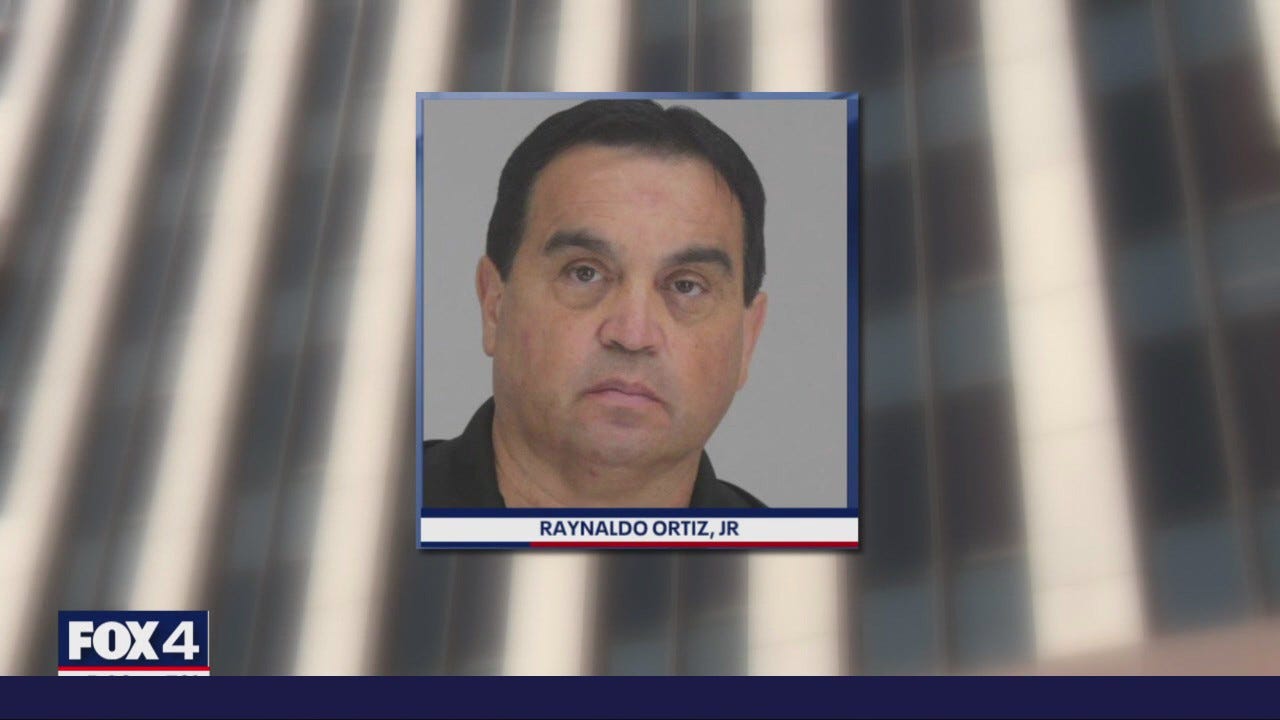Doctor who tampered with patients' IV bags gets 190 years in prison after colleague's death

A Dallas anesthesiologist was sentenced to 190 years in prison Wednesday after prosecutors say he tampered with patient IV bags, injecting them with drugs that led to the death of his colleague.
U.S. District Judge David Godbey for the Northern District of Texas called the man’s actions “tantamount to attempted murder” during sentencing this week, the U.S. Department of Justice said in a news release.
Anesthesiologist Raynaldo Riviera Ortiz Jr., 60, had an eight-day trial in April this year and after seven hours of deliberation, a jury convicted him of four counts of tampering with consumer products resulting in serious bodily injury, one count of tampering with a consumer product and five counts of intentional adulteration of a drug, the DOJ said.
The case dates back to his employment at the Baylor Scott & White Surgicare North Dallas facility from May through August 2022, the DOJ said this week in the news release.
That same year, he was suspended and then indicted in October 2022 on charges related to tampering with IV bags.
According to the DOJ, the tampering led to cardiac complications for some patients, but none of the complications happened during Ortiz’s surgeries, the DOJ said in 2022.
The cardiac complications happened two days after Ortiz found out about a "disciplinary inquiry" surrounding an anesthesia procedure where he "deviated from the standard of care,” the DOJ said.
According to the DOJ, Ortiz had multiple disciplinary actions against him prior to the cardiac complications and some colleagues reported they heard him say his employer was attempting to “crucify” him.
What happened to the patients treated with the tainted IV bags?
In June 2022, about a month after the medical emergencies started, an anesthesiologist who also worked at the facility took an IV bag home to rehydrate. When she inserted the IV into her vein, she suffered a serious cardiac event and died.
According to the DOJ, an autopsy concluded that the cause of her death was a nerve blocking agent often used during anesthesia administration called bupivacaine.
Then a few months later, doctors at the surgical care center suspected IV bags that had been tampered with were causing the medical emergencies. One patient, an 18-year-old, was undergoing a routine sinus surgery when they had to be rushed to the ICU in critical condition.
Once a lab at the University of Texas in Denton looked at fluid from the teen’s IV bag, they found bupivacaine, as well as a stimulant called epinephrine and an anesthetic called lidocaine.
The drugs, when combined, led to "very high blood pressure, cardiac dysfunction and pulmonary edema," federal authorities said. There was also a puncture in the bag.
Attorney says doctor is ‘no better than an armed assailant spraying bullets’
The DOJ said Wednesday that the evidence prosecutors presented during Ortiz’s trial proved he injected IV bags with epinephrine, bupivacaine and other drugs, put the bags into a warming bin and waited for doctors to grab them for use during surgeries.
Among the evidence prosecutors presented was surveillance video showing Ortiz grabbing IV bags from the warming bin and replacing them not long after. Shortly after he replaced the bags, they were taken into operating rooms where patients suffered complications.
Surveillance footage also showed Ortiz mixing vials of medication, the DOJ said.
During the timeframe that these medical emergencies occurred, Ortiz was at risk of losing his medical license.
U.S. Attorney Leigha Simonton for the Northern District of Texas called his actions an attack on at least nine patients in the DOJ’s news release.
“This disgraced doctor acted no better than an armed assailant spraying bullets indiscriminately into a crowd,” she said. “Dr. Ortiz tampered with random IV bags, apparently unconcerned with who he hurt.”
Contributing: Jonathan Limehouse, Paste BN
Saleen Martin is a reporter on Paste BN's NOW team. She is from Norfolk, Virginia – the 757. Follow her on Twitter at @SaleenMartin or email her at sdmartin@usatoday.com.